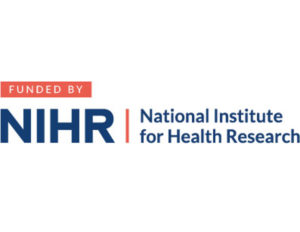The diagnostic utility of inflammatory markers in primary care: a prospective cohort study (PhD)
Start Date Sep 2016
Code E6-Aff, PhD
Status Ongoing
Cancer is common – affecting 50% of the UK population during their lifetime. Early diagnosis is important, with delayed diagnosis associated with more advanced stage at diagnosis and decreased survival. Cancer diagnosis in primary care can be challenging; many of the early symptoms are non-specific and can be difficult to differentiate from the symptoms of common benign conditions.
When patients present with high-risk symptoms, GPs in England can refer via urgent cancer referral pathways, but many patients with cancer present with low-risk (but not no-risk) symptoms. GPs need to triage patients with low-risk symptoms to identify those needing further investigations, using additional ‘clues’ from history, examination and investigations.
One triaging tool increasingly used in clinical practice is inflammatory marker tests, with the three most commonly used in UK practice being C-reactive protein (CRP), erythrocyte sedimentation rate (ESR) and plasma viscosity (PV). These are often performed as a ‘rule-out’ test by clinicians trying to exclude serious underlying disease, including cancer. This practice is largely unsupported by evidence; inflammatory markers are not recognised within current guidelines for cancer diagnosis, with the exception of myeloma, where first line tests include ESR or PV.
To our knowledge, there have been no studies to measure the overall clinical utility of inflammatory markers for cancer diagnosis in primary care. This study aimed to address this omission by measuring the incidence of cancer following inflammatory marker testing in primary care.
Aims & objectives
The aim of this study was to measure the diagnostic utility of inflammatory markers for cancer diagnosis in primary care.
Methodology
Prospective cohort study of UK primary care patients using routinely collected data from electronic health records in the Clinical Practice Research Datalink (CPRD). Participants were 160 000 patients, aged ≥18, of either sex, who had a primary care inflammatory marker blood test (CRP, ESR or PV) taken in 2014.
A comparison sample of 40 000 age, sex and practice matched patients with no inflammatory markers taken during 2014.
Linked data from the English Cancer Registry was obtained by the CPRD for 110 245 patients.
Patients with a record of cancer in CPRD or the cancer registry in the two year period before the index date were excluded (n=4 489), as were patients who had missing or spurious inflammatory marker test results (n=662).
Outputs & impact
Raised inflammatory markers are associated with cancer and may predate the diagnosis by several months, especially in older patients, male patients, and those with very high or persistent abnormalities. Appropriate and timely investigation of patients with raised inflammatory markers may help improve the early detection of cancer. Inflammatory markers are not a useful rule-out test for cancer.
Next steps
At the end of this project we aim to develop a draft guidance or evidence-based schema; allowing clinicians to stratify the risk of disease based on inflammatory marker test result, age and gender. Potential follow on studies could look at the diagnostic utility of multiple ‘routine’ blood tests such as inflammatory markers, platelets, haemoglobin and calcium, in combination, to improve cancer prediction.
Publications
- Watson J, Salisbury C, Banks J, Whiting P, Hamilton W. Predictive value of inflammatory markers for cancer diagnosis in primary care: a prospective cohort study using electronic health records. British Journal of Cancer, 2019, 120:1045-1051
- Watson J, Jones HE, Banks J, Whiting P, Salisbury C, Hamilton W. Use of multiple inflammatory marker tests in primary care: using Clinical Practice Research Datalink to evaluate accuracy. British Journal of General Practice, 2019, doi: 10.3399/bjgp19X704309
- Watson J, Salisbury C, Whiting P, Banks J, Pyne Y, Hamilton W. Added value and cascade effects of inflammatory marker tests in UK primary care: a cohort study from the Clinical Practice Research Datalink. British Journal of General Practice, 2019, doi: 10.3399/bjgp19X704321



